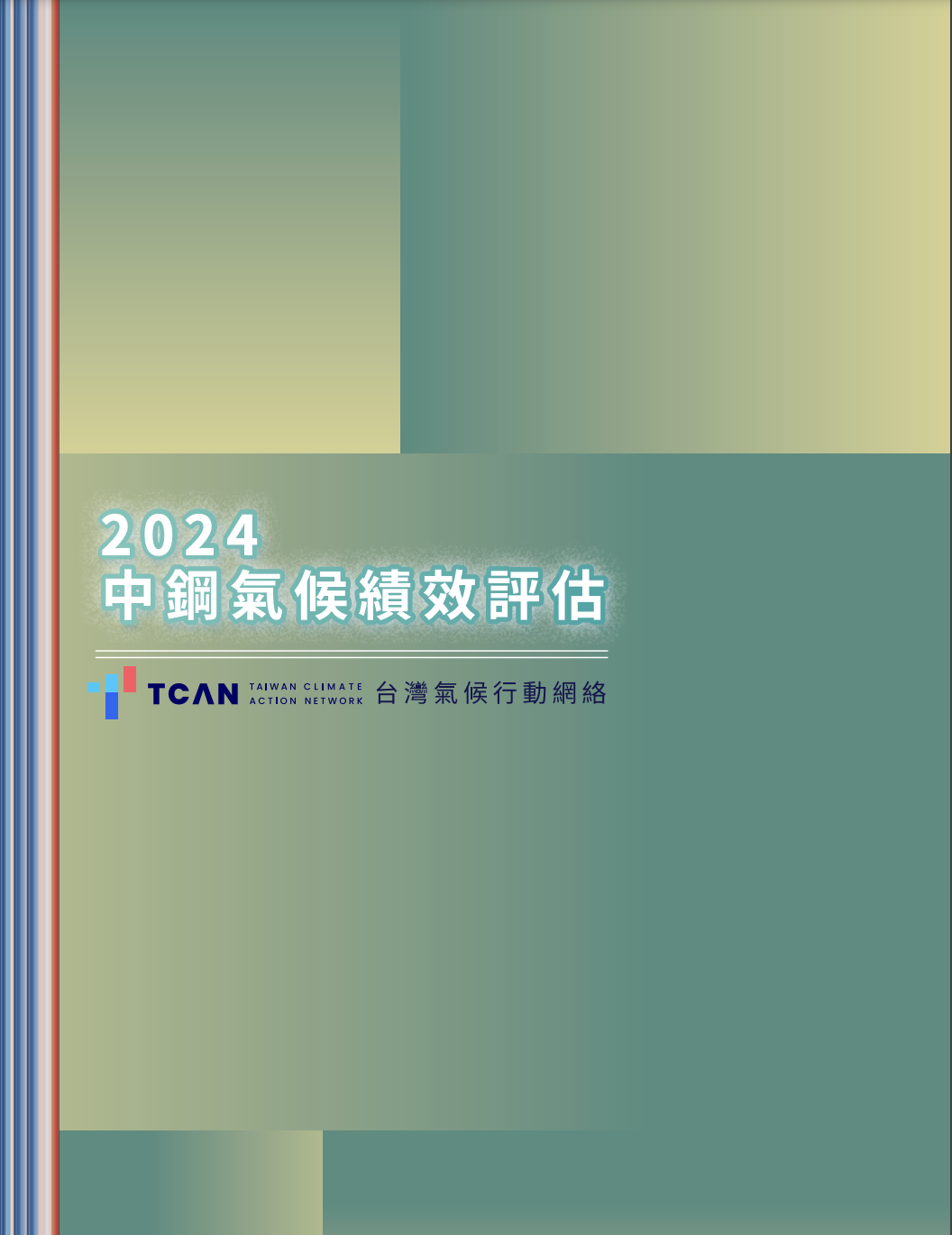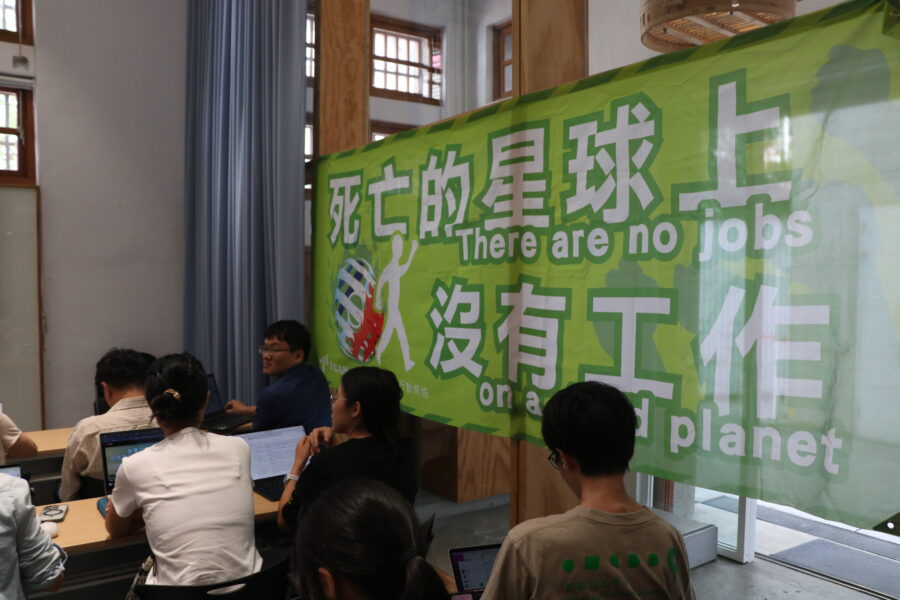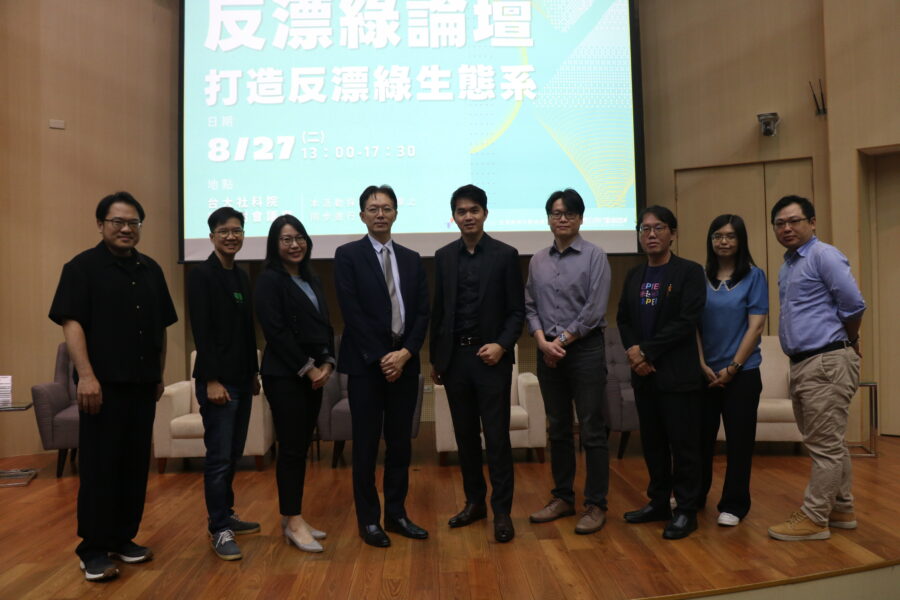China Steel Corporation (CSC), the largest integrated steel maker and the second largest corporate source of emissions in Taiwan, is set to hold its shareholder meeting on 19 June 2024. CSC and its subsidiary Dragon Steel Co. currently emit around 28.64 million tons of CO2 per year, making up 22.7% of Taiwan’s total industrial sector emissions. If CSC fails to decarbonise effectively, it will face risks of increased operational costs from the implementation of the carbon levy and, thus, a decrease in shareholders’ return on equity, all while undermining Taiwan’s efforts to meet the 2050 net-zero emissions target.
At the moment, China Steel exports around 45%, and Dragon Steel 30%, of its products to international markets, including Southeast Asia, Europe, Japan, and elsewhere. As the Group faces competitors from all around the globe, any lags in its net-zero transition represent future risks of cost increases due to carbon tariffs, loss of clients’ orders, reputational damage, stranded assets, and more – jeopardising the rights and interests of its 1.26 million shareholders. To provide CSC and its shareholders with concrete suggestions and action items ahead of the shareholder meeting, the Taiwan Climate Action Network (TCAN) Research Centre has published its 2024 China Steel Climate Performance Assessment report, urging all sectors of society to pay attention to CSC’s progress in climate action and push for the Group to accelerate its net-zero transition.
Continued focus on coal-based blast furnace-basic oxygen furnace (BF-BOF) processes and lack of clear transition plans undermining CSC’s climate performance
Three of the most internationally renowned climate advocacy organisations, the Transition Pathway Initiative, Climate Action 100+, and the World Benchmarking Alliance, have all pointed out three significant gaps that remain in CSC’s climate performance:
- Higher emissions from steel products than European, Japanese, and South Korean counterparts. Its medium-term emissions reduction target for 2030 still needs to be more aggressive to meet the levels of reduction required to meet Paris Agreement goals.
- Insufficient disclosure of data around its climate transition (including just transition) plans. CSC lacks explicit commitments regarding the phase-out of carbon-intensive assets and investments in low-carbon technologies.
- Inadequate public participation in climate policy. While CSC has been collaborating with suppliers, clients, and stakeholders across different industries to co-create benefits from decarbonisation, it has yet to express support for proactive national climate policies or in the industry associations to which it belongs.
CSC’s reliance on carbon capture and storage technologies in its long-term carbon neutrality pathway increases transition risks
In recent years, CSC and Dragon Steel have gradually invested in replacing their coke furnaces and retrofitting their sinter plants and carbon bricks; Dragon Steel also sets to retrofit one of its two blast furnaces in 2025. However, these re-investment plants will extend the blast furnaces’ operational lifetime. Even if CSC adopts carbon capture and storage (CCS) technologies in the future, they will not be helpful towards deep decarbonisation. Latest research from Agora Industry, Lund University, and the Wuppertal Institute underlines four significant challenges for coal-based BFs to meet 2050 net-zero targets through CCS:
- Uncertainties regarding commercialisation timeline. There are currently hardly any blast-furnace-CCS projects developed by the industry, as most investments have focused on direct reduced iron electric arc furnaces (DRI-EAF), an alternative low-carbon process. It is hence much more likely for DRI-EAF to reach commercialisation by 2030, while it remains uncertain when BF-BOF with CCS may reach technological maturity.
- Higher energy demand. Compared to other innovative low-carbon solutions, BF-BOF with CCS has a higher energy demand – the energy required to produce a ton of crude steel is more than twice as much as that of hydrogen-based steelmaking processes.
- Lower decarbonisation potential. BF-BOF with CCS will only bring around 65-73% of reductions in carbon emissions, while multiple other low-carbon solutions can reduce emissions by more than 85%.
- Lack of long-term competitiveness. As countries and jurisdictions start to implement carbon pricing and carbon tariff policies, carbon prices will likely continue rising. By 2050, the cost of BF-BOF with CSS will likely be higher than other low-carbon solutions.
Hence, we urge CSC to consider and coordinate the timeline for introducing other low-carbon solutions as they retrofit their furnaces and related equipment. They must take advantage of the best opportunity to transition to low-carbon production processes instead of banking on BF-BOF with CCS and endlessly extending the operational lifetime of their furnaces.
Shareholder activism for CSC to accelerate its net-zero transition
Regarding CSC’s insufficient ambition to meet decarbonisation targets, lack of specific low-carbon transition plans, and over-reliance on CCS for its mid-to-long-term decarbonisation measures, shareholders can act by filing motions at the shareholders’ meeting demanding that CSC present improvement plans and regularly disclose relevant climate information. Particularly, the Ministry of Economic Affairs (MOEA), the largest shareholder and the competent authority under the Climate Act, should rigorously supervise the CSC group’s decarbonisation commitments and ensure that future capital allocation plans align with mid-to-long-term net-zero pathways. Others among the top ten of CSC’s shareholders, such as Cathay, Fubon, Chunghwa Post, and the Bureau of Labour Funds, should also exert their influence over the effectiveness of CSC’s net-zero transition.
Specifically, TCAN calls on CSC shareholders, especially those in the top ten, to make the three following demands at this year’s shareholders’ meeting and subsequent engagement meetings:
- Fully disclose its climate risks. While CSC mentions in its annual report that it has assessed its climate risks, the Group does not disclose the impact of implementing the carbon levy it faces in its annual and sustainability reports. Neither does it analyse the financial impacts of the trend that net-zero steelmaking processes will need to account for 27% of the world’s steel production by 2035. Therefore, CSC should be required to fully disclose its Taskforce on Climate-related Financial Disclosures (TCFD) report and explain its response strategies for various climate risks to its investors.
- Propose a climate transition plan by 2025. Taiwan will implement the International Financial Reporting Standards (IFRS) ‘s sustainability disclosure standards in 2026, which require companies to present their climate transition plans. As the company with the highest number of shareholders in Taiwan and a capital exceeding billions of dollars, CSC should lead by example and propose its transition plan by 2025. This is especially crucial given that multiple blast furnaces are entering major maintenance and replacement cycles, necessitating a climate transition plan to guide investment decisions. Setting mid-term goals aligned with the net-zero pathway, avoiding over-reliance on CCS for emissions reduction strategies, and having reliable future investment plans can reduce shareholder investment risks.
- Actively engage in social dialogue and realise a just transition. CSC employees and the labour pension fund are among the top ten shareholders of the Group. Therefore, in addition to ensuring that CSC can achieve net-zero targets, it is also critical to demand that CSC engages in dialogue with labour unions to evaluate the impact of various decarbonisation strategies on employment and occupational health and safety, and to develop response strategies in alignment with the principles of a just transition.
###
Statement by:
TCAN Research Centre, Green Citizens’ Action Alliance
Media Contacts:
Chia-wei, Chao – Director, TCAN Research Centre
Yi-jiun, Lin – Researcher, TCAN Research Centre
Link to the 2024 China Steel Climate Performance Assessment report (in Mandarin Chinese)



